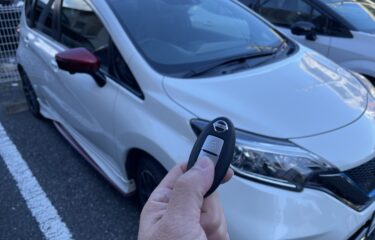- Japanese Used Car
- Blog
Japanese Cars for Sale: Finding Quality in Australia

When it comes to purchasing a used car in Australia, Japanese vehicles often stand out as top choices for many buyers. Renowned for their reliability, fuel efficiency, and excellent resale value, Japanese cars have firmly established themselves as favorites among Australians. Whether you’re looking for a dependable sedan, a rugged SUV, or an eco-friendly hybrid, the options available from Japanese manufacturers are vast and varied. This guide will walk you through everything you need to know about finding, buying, and maintaining a high-quality Japanese car in Australia, ensuring that your investment is both wise and rewarding.
Why Japanese Cars Are Popular in Australia

Japanese cars have become a staple on Australian roads, revered for their reliability, affordability, and wide availability. Here’s why they continue to be the preferred choice for many Australians.
Durability and Reliability of Japanese Cars
Japanese manufacturers are known for producing vehicles that last. Toyota, Honda, and Nissan consistently rank high in reliability surveys, making them ideal choices for those seeking a long-term investment. Their engineering excellence ensures that these vehicles can endure the harsh conditions of Australia’s varied landscapes, from urban streets to rugged outback roads.
Resale Value: Japanese Cars as a Wise Investment
Japanese cars maintain their value well over time, making them a sound financial investment. The strong reputation of brands like Toyota and Subaru in the second-hand market means that even years after purchase, these cars often command higher resale prices compared to other makes. This is particularly advantageous for buyers looking to sell or upgrade their vehicles in the future.
Fuel Efficiency and Environmental Considerations
With rising fuel costs and increasing environmental awareness, the fuel efficiency of Japanese cars is a significant advantage. Brands like Honda and Mazda offer models with excellent mileage, reducing the overall cost of ownership. Additionally, the availability of hybrid options, such as the Toyota Prius, aligns with the growing demand for eco-friendly vehicles in Australia.
Popular Japanese Car Brands in Australia: Toyota, Honda, Nissan, and More
Toyota, Honda, Nissan, Mazda, and Subaru are household names in Australia. Each brand brings its own set of strengths, from Toyota’s unmatched reliability to Mazda’s sporty designs and Nissan’s innovative technologies. Understanding the key offerings from each brand can help you choose a car that best fits your lifestyle and needs.
Availability of Spare Parts and Aftermarket Services
One of the major benefits of owning a Japanese car in Australia is the easy access to spare parts and aftermarket services. With numerous service centers and a thriving aftermarket industry, finding parts or getting repairs done is convenient and affordable. This ensures that your vehicle remains in top condition without breaking the bank.
Where to Find Japanese Cars for Sale in Australia

There are several avenues to explore when searching for a high-quality Japanese car in Australia. Whether you’re browsing online or visiting dealerships, understanding where to look can streamline your buying process.
Online Marketplaces: Websites and Apps for Used Cars
Online marketplaces such as Carsales, Gumtree, and Facebook Marketplace offer extensive listings of Japanese cars across Australia. These platforms allow you to filter results based on make, model, price, and location, making it easy to find the perfect car from the comfort of your home.
Japanese Car Dealerships Across Australia
Many dealerships specialise in Japanese cars, offering both new and certified pre-owned vehicles. Visiting these dealerships allows you to test-drive cars, assess their condition firsthand, and take advantage of dealer warranties and financing options.
Importing Directly from Japan: What You Need to Know
Importing a car directly from Japan can be an attractive option for those seeking specific models or better deals. However, this process involves understanding import regulations, compliance with Australian standards, and potential additional costs such as shipping and taxes.
Auctions: How to Buy a Japanese Car at Auction in Australia
Car auctions, both online and in-person, can be a great way to find a deal on a Japanese car. Auction houses like Manheim and Pickles offer a variety of vehicles, including imports and ex-lease cars. However, it’s crucial to be prepared with knowledge of the auction process and vehicle valuations to avoid overpaying.
Checking Local Classifieds for Hidden Gems
Don’t overlook local classifieds when searching for a used Japanese car. Newspapers and community boards often feature private listings that may not appear online. While these can lead to great finds, it’s important to approach with caution, ensuring thorough checks and verifications.
Pros and Cons of Buying from Private Sellers
Purchasing from a private seller can sometimes offer better prices, but it also comes with risks. Without the safety net of dealer warranties, buyers need to be more diligent in inspecting the car’s condition, verifying its history, and negotiating terms. Understanding the pros and cons can help you decide if this route is right for you.
How to Evaluate a Japanese Used Car

Evaluating a used car is crucial to ensure you’re getting a reliable vehicle. Here’s what you need to know to make an informed purchase.
What to Look for in a High-Quality Used Japanese Car
Start by checking the car’s exterior and interior for signs of wear and tear. Look for consistent paintwork, minimal rust, and a clean, well-maintained interior. Mechanical aspects such as the engine, brakes, and suspension should be in good working order, with no unusual noises or vibrations.
Understanding Car Histories: Service Records and Accident Reports
A complete service history is a good indicator of how well the car has been maintained. Additionally, checking accident reports can reveal any significant damage that may affect the car’s performance or value. Services like CarHistory or PPSR can provide these records in Australia.
Common Issues to Watch Out for in Japanese Imports

Imported cars may have issues related to compliance with Australian standards or might lack certain features required locally. Common problems include odometer fraud, past flood damage, and issues with parts availability for older models. Being aware of these risks can save you from future headaches.
To ensure you’re making a safe and informed purchase, it’s essential to conduct thorough research and consider all potential risks associated with buying an imported Japanese car. One way to mitigate these risks is by working with reputable dealers who specialise in Japanese imports and understand the regulations and conditions affecting imported vehicles in the Australian market. For those looking to explore a wide selection of high-quality Japanese used cars, visit Roundabout Australia, a trusted motor dealer that offers a range of vehicles specifically tailored to Australian buyers. You can browse our inventory and find detailed information on each vehicle, helping you make a confident and secure purchasing decision.
How to Perform a Pre-Purchase Inspection
Before finalizing a purchase, it’s wise to perform a thorough inspection. This includes checking the engine, transmission, brakes, and electrical systems. Many buyers opt to hire a professional mechanic for an independent inspection to ensure no details are overlooked.
The Role of Independent Car Inspections
An independent car inspection provides an unbiased assessment of the vehicle’s condition. These inspections can reveal hidden problems and help you negotiate a fair price or avoid a problematic car altogether.
Understanding Australian Vehicle Standards and Compliance for Japanese Cars
Ensuring the car meets Australian safety and environmental standards is essential, especially for imports. This involves checking compliance plates, ensuring proper registration, and confirming that modifications meet local regulations.
Financing and Insuring Your Japanese Used Car

Buying a car involves more than just the purchase price. Understanding your financing and insurance options can help you manage costs effectively.
Financing Options for Buying a Used Car in Australia
Various financing options are available for used car buyers in Australia, including bank loans, dealer financing, and personal loans. Comparing interest rates, loan terms, and eligibility criteria can help you choose the best option for your financial situation.
Getting the Best Insurance for Japanese Cars
Car insurance is mandatory in Australia, and finding the right coverage for your Japanese car is crucial. Consider factors like the car’s value, your driving history, and the coverage types (comprehensive, third-party, etc.) when selecting an insurance policy.
Tips for Negotiating the Price
Negotiation is a key part of the car buying process. Start by researching the car’s market value and being prepared to walk away if the seller isn’t willing to meet a fair price. Remember, private sellers may be more flexible than dealerships.
Tax Implications When Buying a Used Car in Australia
When purchasing a used car in Australia, you may need to pay stamp duty and registration transfer fees. Understanding these costs upfront can help you budget appropriately and avoid surprises after the purchase.
Extended Warranties: Are They Worth It for Japanese Cars?
Extended warranties can offer peace of mind, particularly for used cars. Consider the car’s age, mileage, and the warranty’s coverage details before deciding if an extended warranty is a worthwhile investment.
How to Import Japanese Cars to Australia

Importing a car from Japan involves specific steps and regulations. Here’s a guide to help you navigate the process.
Import Regulations and Compliance: What You Need to Know
Australia has strict import regulations to ensure safety and environmental standards are met. Understanding these regulations, including the types of cars allowed and compliance requirements, is crucial before starting the import process.
The Import Process: Step-by-Step Guide
The import process includes several steps, from selecting a car and arranging shipping to clearing customs and ensuring compliance with Australian standards. Having a clear understanding of each step can help you avoid delays and additional costs.
Costs Associated with Importing a Japanese Car
Importing a car involves various costs, including purchase price, shipping, customs duties, and compliance modifications. Be sure to budget for these expenses to avoid unexpected financial strain.
How to Choose a Reliable Importer
Selecting a trustworthy importer is crucial to a smooth buying experience. Look for importers with a solid reputation, transparent pricing, and experience in handling Japanese vehicles.
Registration and Licensing for Imported Japanese Cars
Once your car arrives in Australia, you’ll need to register and license it according to local laws. This involves ensuring the car complies with Australian standards, paying relevant fees, and obtaining insurance.
Pros and Cons of Importing vs. Buying Locally
Importing a car can offer more choices and potentially lower prices, but it also comes with risks and additional responsibilities. Weighing these pros and cons can help you decide whether importing or buying locally is the best option for you.
Popular Japanese Car Models in Australia
Japanese car models are popular in Australia for a reason. Here’s a look at some of the top choices across different categories.
Top-Selling Japanese Sedans: Features and Prices
Sedans like the Toyota Camry and Honda Accord are perennial favorites in Australia. Known for their comfort, reliability, and fuel efficiency, these models offer excellent value for money. We’ll compare features, prices, and what makes these sedans a smart choice.
Best Japanese SUVs for Australian Roads
SUVs like the Nissan X-Trail and Subaru Forester are well-suited for Australia’s diverse terrains. These models offer a blend of durability, space, and performance, making them ideal for both city driving and off-road adventures.
Japanese Sports Cars: Finding the Perfect Performance Vehicle
For those seeking excitement, Japanese sports cars like the Mazda MX-5 and Nissan 370Z deliver thrilling performance. We’ll explore the key features, driving dynamics, and price points of these popular models.
Japanese Hybrids: Eco-Friendly Options Available in Australia
Hybrid models such as the Toyota Prius and Honda Insight offer eco-friendly driving without compromising on performance. These cars are increasingly popular among Australian drivers looking to reduce their carbon footprint while saving on fuel costs.
Classic Japanese Cars: Finding Vintage Models in Australia
For collectors and enthusiasts, classic Japanese cars like the Toyota Supra and Nissan Skyline hold timeless appeal. We’ll discuss where to find these vintage gems and what to consider when buying a classic car.
Comparing Prices of Popular Japanese Models in Australia
Understanding the price differences between various Japanese models can help you make an informed purchase. We’ll compare the costs of top-selling sedans, SUVs, sports cars, and hybrids to guide your decision.
Maintaining Your Japanese Used Car in Australia

Proper maintenance is key to preserving the longevity and performance of your Japanese car. Here’s how to keep it running smoothly.
Routine Maintenance Tips for Japanese Cars
Regular maintenance, including oil changes, brake checks, and tire rotations, is essential for keeping your car in top shape. Following the manufacturer’s maintenance schedule can help prevent costly repairs down the line.
Finding Reliable Mechanics Specialising in Japanese Cars
Australia has many mechanics who specialise in Japanese cars. Choosing a mechanic with experience in your specific make and model ensures that your car receives the best possible care.
How to Source Affordable Spare Parts
Finding affordable spare parts is easier than ever, thanks to a robust aftermarket industry. Whether you’re looking for OEM parts or high-quality alternatives, knowing where to shop can save you money without compromising on quality.
Understanding Manufacturer's Recommendations vs. Local Needs
Japanese cars are designed with specific maintenance requirements, but local driving conditions in Australia may necessitate adjustments. Understanding the balance between following the manufacturer’s guidelines and adapting to local conditions is key to maintaining your car’s performance.
Tips for Preserving the Resale Value of Your Japanese Car
Maintaining your car’s resale value involves more than just regular servicing. Keeping the car clean, addressing repairs promptly, and maintaining detailed service records can help you get the best price when it’s time to sell.
Handling Repairs: What You Can DIY and When to Seek Help
While some repairs can be done at home, others require professional attention. We’ll discuss common DIY maintenance tasks and when it’s best to leave it to the experts to avoid costly mistakes.
By understanding these key aspects of buying, owning, and maintaining a Japanese car in Australia, you can make informed decisions and enjoy the benefits of driving a high-quality vehicle that meets your needs.
Popular

- Japanese Used Car
- Blog
The Pitfalls of Purchasing Imported Japanese Used Cars
27 February 2024

- Blog
Your Complete Guide to Buying a Used Car in Australia: From Pre-Purchase Inspection to Post-Purchase Maintenance
01 October 2024

- Car Functions
- Blog
Smart Key Solutions: Battery Replacement and Troubleshooting
23 March 2024

